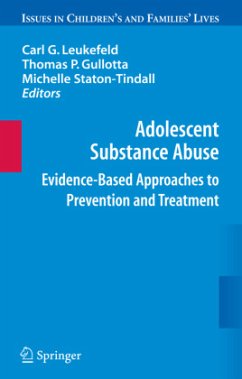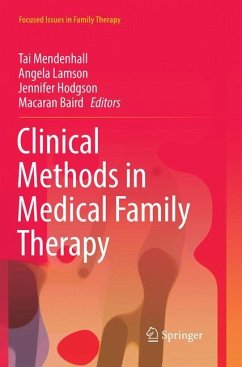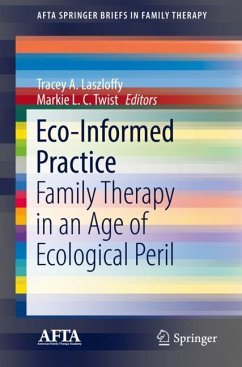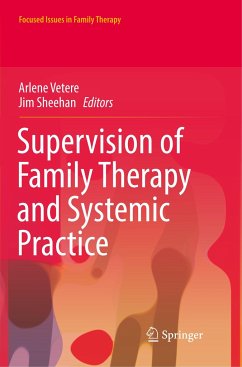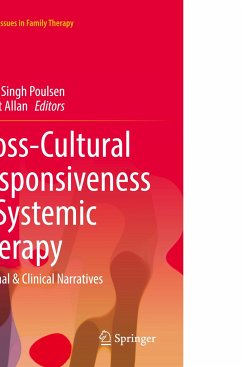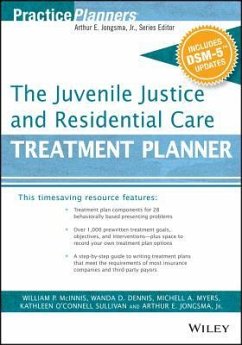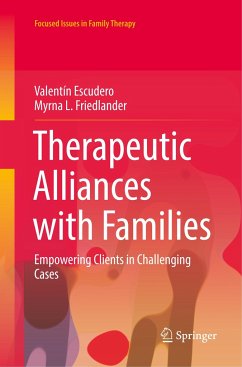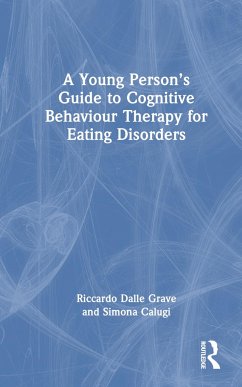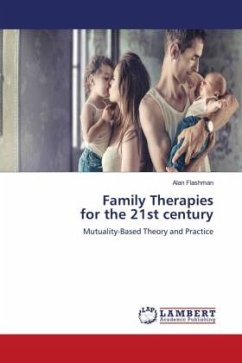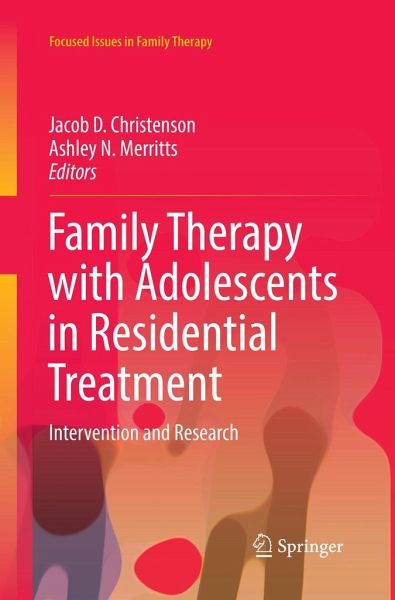
Family Therapy with Adolescents in Residential Treatment
Intervention and Research
Herausgegeben: Christenson, Jacob D.; Merritts, Ashley N.
Versandkostenfrei!
Versandfertig in 6-10 Tagen
76,99 €
inkl. MwSt.

PAYBACK Punkte
38 °P sammeln!
This highly practical resource integrates the powerful dynamics of family into residential treatment and outdoors-based therapy for young people. Recognizing both the family as the systemic base for promoting change in adolescents and the therapeutic potential of the residential/wilderness setting, experts show how aligning the two can enhance the healing value of the program while promoting higher standards for care. Chapters describe innovative, science-based interventions and techniques for treating common behavioral and emotional problems along a continuum of family involvement and separat...
This highly practical resource integrates the powerful dynamics of family into residential treatment and outdoors-based therapy for young people. Recognizing both the family as the systemic base for promoting change in adolescents and the therapeutic potential of the residential/wilderness setting, experts show how aligning the two can enhance the healing value of the program while promoting higher standards for care. Chapters describe innovative, science-based interventions and techniques for treating common behavioral and emotional problems along a continuum of family involvement and separation, to address issues affecting the family as well as the identified patient. With its accessible ideas and compelling case studies, the book ably demonstrates the critical role of family in adolescent patients' successful transition to post-treatment life.
Among the topics covered:
- A parallel process: home therapy while the adolescent or young adult is in residential care.- Intentional separation of families: increasing differentiation through wilderness therapy.- Emerging family therapy models utilized in residential settings.- Engaging families in Outdoor Behavioral Healthcare.- Research on coping skills used by youth with emotional and behavioral disorders.- Expanding our understanding of the place of family therapy in residential treatment.
Family Therapy with Adolescents in Residential Treatment offers novel, exciting, and effective strategies and techniques for practitioners and mental health professionals particularly interested in family therapy with adolescents, and in related interventions and research.
Among the topics covered:
- A parallel process: home therapy while the adolescent or young adult is in residential care.- Intentional separation of families: increasing differentiation through wilderness therapy.- Emerging family therapy models utilized in residential settings.- Engaging families in Outdoor Behavioral Healthcare.- Research on coping skills used by youth with emotional and behavioral disorders.- Expanding our understanding of the place of family therapy in residential treatment.
Family Therapy with Adolescents in Residential Treatment offers novel, exciting, and effective strategies and techniques for practitioners and mental health professionals particularly interested in family therapy with adolescents, and in related interventions and research.





